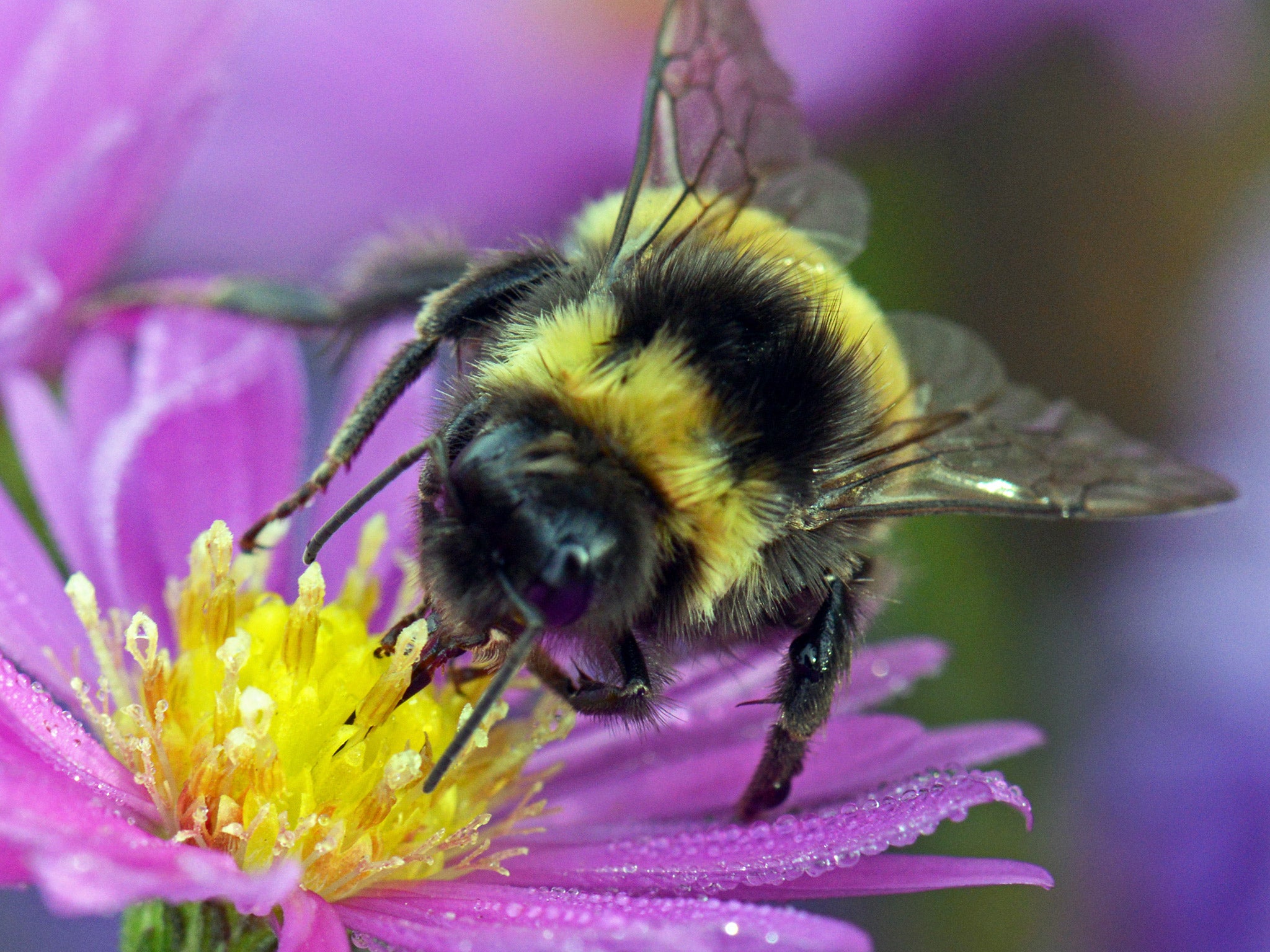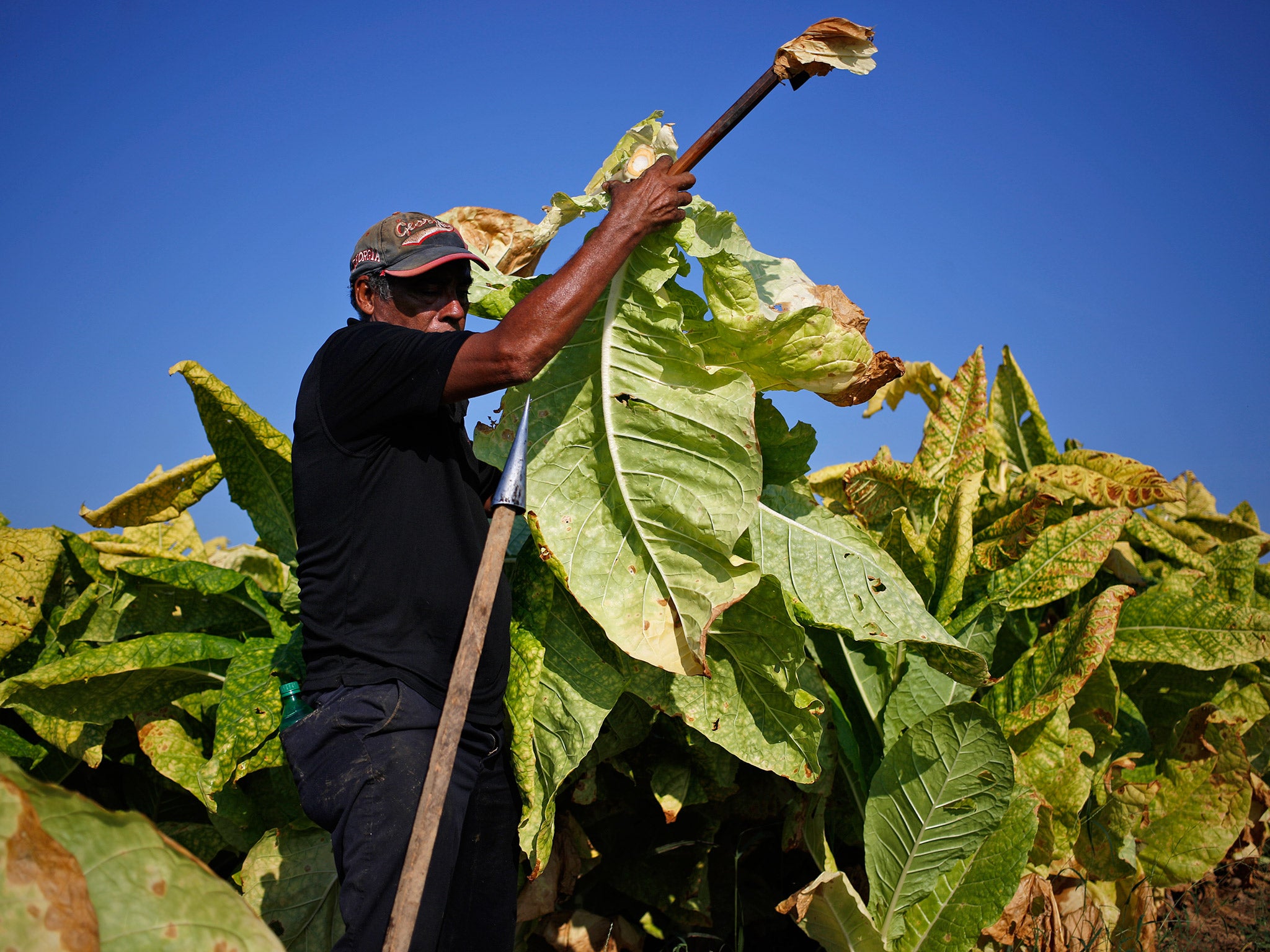Tobacco plants could help dying bumblebees stay healthy
Scientists show tobacco can kill common bumblebee parasites

Chomping on tobacco is not the first thing that springs to mind when considering how to lead a healthier life – yet the nicotine-rich plant is exactly what bees should feast on if they want to reverse their alarming decline.
Scientists have discovered the naturally occurring chemicals found in the flowers of tobacco and other plants can reduce infection levels of a common bumblebee parasite by more than 80 per cent. Insects that were fed a diet of anabasine, the alkaloid found in tree tobacco, were “more likely” to be parasite-free after one week.
The lab-based findings show that growing these kinds of plants around farm fields could create a natural “medicine cabinet” that improves survival of diseased bees and pollination of crops, according to the researchers from Dartmouth College and the University of Massachusetts-Amherst in the US.
The team studied parasite infections in bumblebees, which like honeybees are important pollinators in decline around the world, in a trend that threatens fruits, vegetables and other crops that make up much of our food supply. The scientists, whose work is published in the Royal Society’s flagship biological research journal, Proceedings B, said the concentrations used in the study probably underestimate bees’ actual exposure to plant chemicals.
“One possibility suggested by our results is that bees could self-medicate by consuming plant secondary metabolites when they are infected with parasites,” said the researchers, who hypothesised that some nectar compounds could reduce parasite infections in bees.

They inoculated individual bumble bees which had intestinal parasites and tested effects of eight naturally occurring nectar chemicals on parasite population growth. The results showed that consumption of these chemicals lessened the intensity of infection by up to 81 percent, which could significantly reduce the spread of parasites within and between bee colonies.
Senior author Dartmouth Professor Rebecca Irwin said: “Our study was lab-based and so our results need to be interpreted in that light. Nonetheless, we are extending our results from the lab into the field with planned research to assess how planting plants in pollinator strips around agricultural crops will affect bee disease and pollination services to crops.”
There are around 250 species of bumblebee in the world, and most of these are found in the northern hemisphere, although South America has a few native species, and New Zealand has some which were introduced from Britain, according to the Bumblebee Conservation Trust (BCT).
Bumblebees have been declining because of changes in agricultural practises that have largely removed flowers from the landscape, leaving them with little to feed upon. Most of the UK’s 24 species have declined greatly in recent years, and two have become extinct since 1940.
The BCT’s Dr Richard Comont said: “The honeybee is known to seek out plant secondary metabolites with antifungal properties when exposed to fungus, for example, but this is the first instance in bumblebees as far as I know. It’s a lab study, so hasn’t demonstrated that bumblebees actually seek out the beneficial compounds, but certainly planting the relevant plants more widely would increase bees’ exposure to them. Two of the three compounds tested are found in plant species widely grown across Britain, such as nightshades, potatoes and tomatoes, so bees may already be able to self-medicate if desired.”
Join our commenting forum
Join thought-provoking conversations, follow other Independent readers and see their replies
Comments
Bookmark popover
Removed from bookmarks